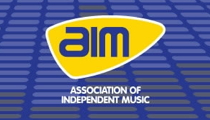This website uses cookies so that we can provide you with the best user experience possible. Cookie information is stored in your browser and performs functions such as recognising you when you return to our website and helping our team to understand which sections of the website you find most interesting and useful.
Business News Digital Labels & Publishers Legal
AIM CEO Alison Wenham’s letter to Vince Cable over indie labels’ YouTube dispute
By CMU Editorial | Published on Thursday 5 June 2014
To:
Rt Hon Vince Cable, MP
Secretary of State for Business, Innovation and Skills
CC:
Rt Hon David Cameron, MP
Rt Hon George Osborne, MP
Rt Hon Ed Vaizey, MP
Rt Hon Sajid Javid, MP
2 June 2014
Dear Secretary of State
Google/YouTube threats to independent artists and music companies
We write to draw your urgent attention to recent action taken by YouTube with regard to music recordings from independent music rights holders.
The independent music sector is made up of small and medium size enterprises, and employs 80% of the industry’s workforce. It accounts for 80% of all new commercial music releases. Independent record companies act as investors in creativity and culture, searching out individual talent and giving them the starting point to build a sustainable career in the creative industries. They perform a vital role both economically and culturally. Every new genre and trend in music has been kick-started by the independent sector.
The independent music sector is home to artists from Adele to Billy Bragg. British independent music companies lead the world in innovation, in export success and global market share. Artists such as Adele and Billy Bragg choose independent record companies to work with as they provide more partnership, more flexibility, more transparency and a longer career trajectory than any major. UK market share in 2013 was 26%, making it the second largest entity after Universal Music Group.
You Tube is in a dominant position with approximately 80% of Internet users engaging with You Tube for video streaming. As you know, YouTube has been a wholly owned subsidiary of Google since 2006. YouTube is expected to launch a new audio music streaming service to compete with established services such as Spotify, and is attempting to force contract terms upon the independent sector which we understand are significantly inferior to those offered to the international ‘major’ record companies (Sony, Warner and Universal). If independent companies do not sign up to these revised terms, YouTube has summarily threatened to remove (block) their repertoire from the YouTube service.
According to our members, the terms currently on offer to independent companies from YouTube are non-negotiable and highly unfavourable, and in many cases, unworkable (for example insisting on global rights which the independent may not be able to grant). They also undermine existing rates in the marketplace from music streaming partners such as Spotify, Rdio, Deezer and others. All these companies chose to pre-license independent content at terms which are comparable to the majors, something which YouTube has never attempted to do, preferring to hide behind the ‘Safe Harbour’ provision in the 2000 E-Commerce Directive.
If this bullying and intimidating behaviour does not stop, the implications are very serious indeed, not only for the music industry, but for all creative and rights based industries. We face the very real prospect of all internet based trade in creative output being colonised by two or three large offshore corporations, who seem intent on taking as much value for themselves, and passing as little value as possible back to those entities, companies and artists creating the very content on which their businesses are built and are dependent. There are parallels in the book retailing world: it is now a matter of public record that Amazon is punishing publishers who refuse to sign new terms which amount to a transfer of value, not a benefit to the consumer, the creator or British industry.
Google has shown little willingness to play fair on issues such as tax responsibility, and it now shows a similar lack of regard for culture and creativity. We would argue that a dominant player such as YouTube forcing SMEs to accept lower rates than non-SMEs constitutes abuse of a dominant position, with regard to the digital music and video streaming market.
We ask Government to urgently intervene, in order that other creative sectors are not forced into expensive and wasteful litigation against dominant players such as Google. We call on Government to prevent You Tube from blocking these independent companies from their platforms while they seek a commercial solution.
The significance of this issue is such that the independent sector, through its Brussels based lobbying body IMPALA, is taking action at European Commission level on this matter as a matter of urgency.
We would be very happy to provide you with further information on this matter.
Yours sincerely,
Alison Wenham
CEO, Association of Independent Music






